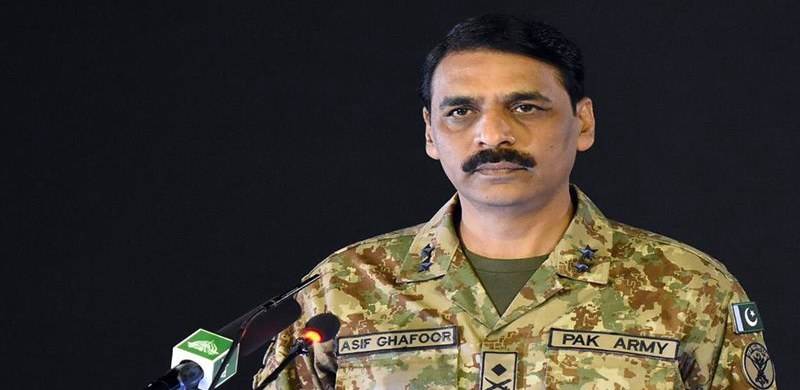
There is to be a change of guard, so to say, at the office of the DG ISPR today. Maj Gen Asif Ghafoor leaves to command the 40th Infantry Division and his place as the military's chief spokesperson is to be taken by Maj Gen Babar Iftikhar.
The outgoing DG leaves a complex and much-debated legacy.
His time at that post marks the transformation and growth of the ISPR – from having a relatively low profile into one of the most influential voices in Pakistan's public sphere. This had all kinds of consequences.
Perhaps most importantly, the level of public engagement between the country's all-powerful military and citizens was unprecedented. In Maj Gen Asif Ghafoor, a number of young urban Pakistanis found a figure whose pronouncements they could relate to and follow avidly. Media outlets also found a ready interlocutor at the highest level of the military.
The centralization of information flow in times of conflict was a salutary effect of his efforts. Especially during the post-Pulwama confrontation between South Asia's two nuclear-armed rivals, Gen Ghafoor systematically provided Pakistan's version to the world media – cutting through the cacophony of rumours, exaggerations and provocations that took over social and electronic media in India and Pakistan alike.
There have also been some peculiar developments during his time as DG.
Firstly, he did much to popularize the notions of “hybrid” and “fifth-generation” warfare, but it is still not clear what these terms are and how they are different from other understandings of international conflicts.
Right-wing elements in the country's public sphere certainly hijacked these terms to make a blanket condemnation of all critical and progressive voices, painting them as disloyal elements. It would be best if the country's military establishment were to openly distance itself from efforts by authoritarian forces in society to hijack security discourse for obscurantist and selfish goals.
Secondly, the unprecedented level of public engagement also led to some unfortunate exchanges between the military spokesperson and various critics of state policy. There was widespread agreement in such cases that sparring on social media was unsuitable for officials in such a crucial post.
Hopefully, the incoming DG ISPR would be able to take a dispassionate view of the institution, its role and the level of engagement that an incumbent leader should undertake. In that process, Maj Gen Babar Iftikhar would be able to learn equally from the strengths and challenges of the past few years.
The outgoing DG leaves a complex and much-debated legacy.
His time at that post marks the transformation and growth of the ISPR – from having a relatively low profile into one of the most influential voices in Pakistan's public sphere. This had all kinds of consequences.
Perhaps most importantly, the level of public engagement between the country's all-powerful military and citizens was unprecedented. In Maj Gen Asif Ghafoor, a number of young urban Pakistanis found a figure whose pronouncements they could relate to and follow avidly. Media outlets also found a ready interlocutor at the highest level of the military.
The centralization of information flow in times of conflict was a salutary effect of his efforts. Especially during the post-Pulwama confrontation between South Asia's two nuclear-armed rivals, Gen Ghafoor systematically provided Pakistan's version to the world media – cutting through the cacophony of rumours, exaggerations and provocations that took over social and electronic media in India and Pakistan alike.
There have also been some peculiar developments during his time as DG.
Firstly, he did much to popularize the notions of “hybrid” and “fifth-generation” warfare, but it is still not clear what these terms are and how they are different from other understandings of international conflicts.
Right-wing elements in the country's public sphere certainly hijacked these terms to make a blanket condemnation of all critical and progressive voices, painting them as disloyal elements. It would be best if the country's military establishment were to openly distance itself from efforts by authoritarian forces in society to hijack security discourse for obscurantist and selfish goals.
Secondly, the unprecedented level of public engagement also led to some unfortunate exchanges between the military spokesperson and various critics of state policy. There was widespread agreement in such cases that sparring on social media was unsuitable for officials in such a crucial post.
Hopefully, the incoming DG ISPR would be able to take a dispassionate view of the institution, its role and the level of engagement that an incumbent leader should undertake. In that process, Maj Gen Babar Iftikhar would be able to learn equally from the strengths and challenges of the past few years.
